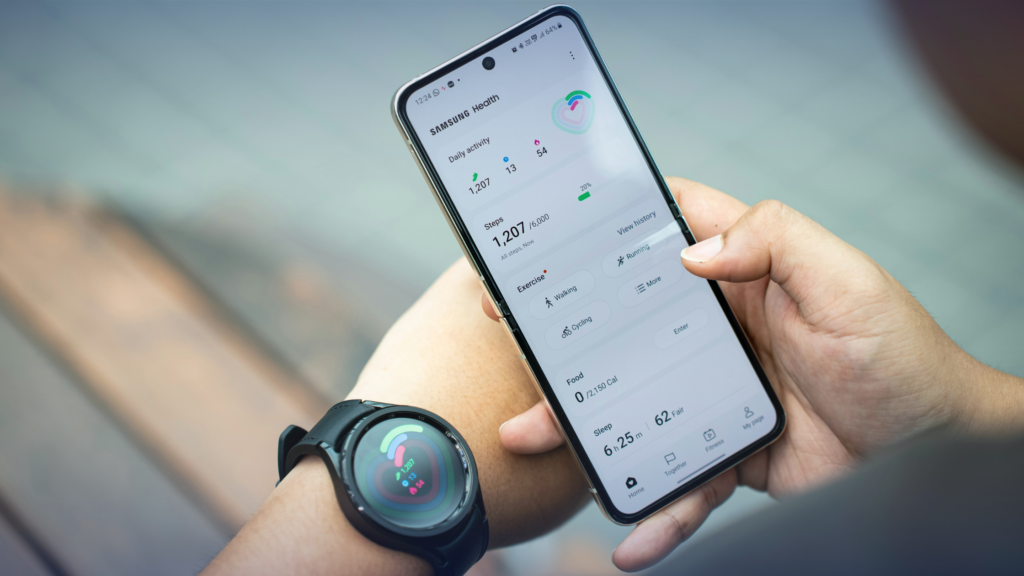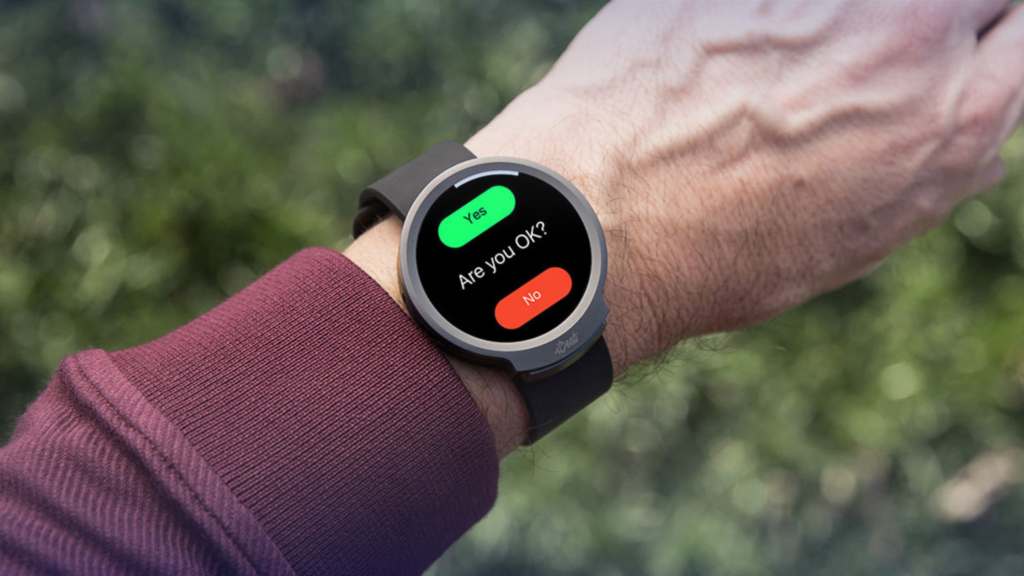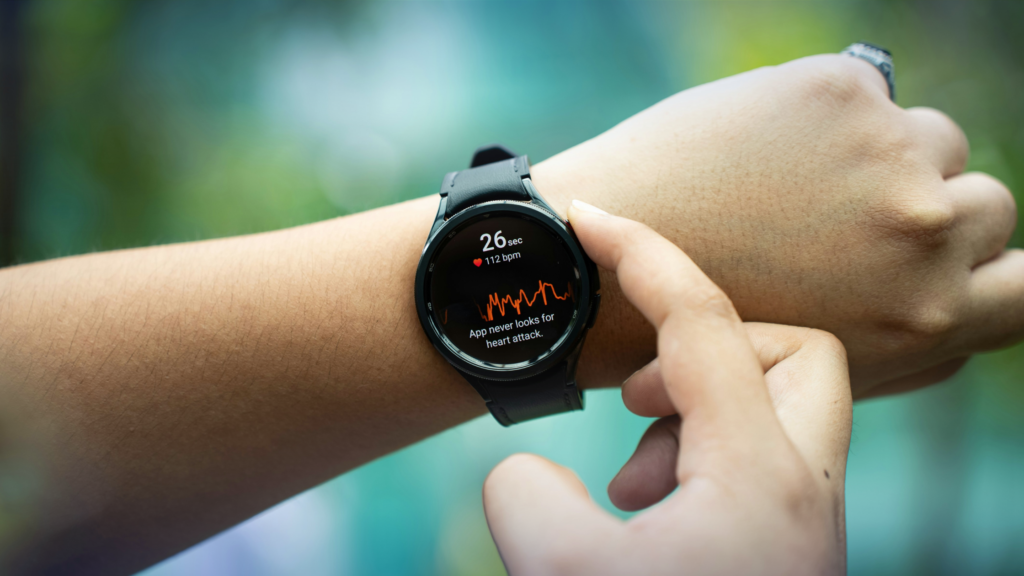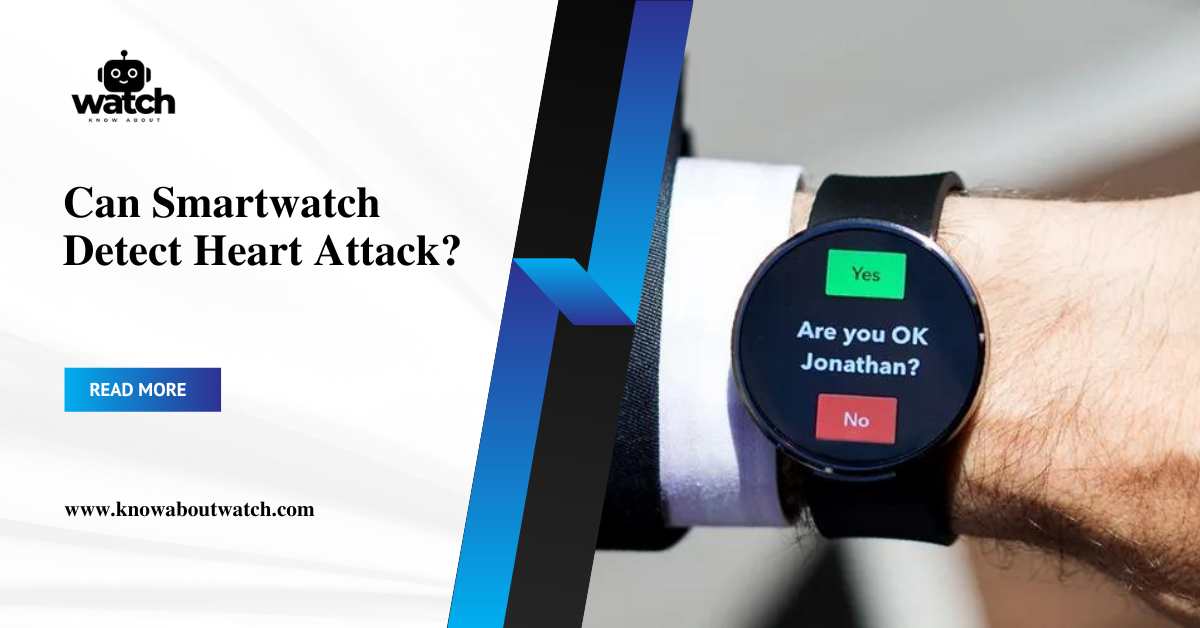Imagine a world where a tiny device on your wrist could potentially save your life. Sounds like science fiction? Think again. In today’s tech-driven era, “Can smartwatch detect heart attack?” is more relevant than ever. With increasing advancements in wearable technology, many people wonder if their smartwatch can do more than just track steps and calories. But how accurate are these devices in detecting such critical health issues? Before you dismiss the idea as mere marketing hype, let’s delve into the science and stories behind these innovations.
In this article, we’ll uncover the fascinating capabilities of smartwatches, explore the latest research on heart attack detection, and address common misconceptions. By the end, you’ll have a clearer understanding of whether your smartwatch could be a life-saving tool. So, keep reading to find out if this wrist-worn technology lives up to its life-saving potential.
The Evolution of Smartwatches

A Brief History
Smartwatches have come a long way since their inception. Originally, they were little more than digital watches with a few extra features like alarms and calculators. However, as technology advanced, so did the capabilities of these wrist-worn devices. The first wave of modern smartwatches emerged in the early 2010s, primarily focused on fitness tracking. These devices could monitor steps, calories burned, and basic heart rate.
A significant milestone was the introduction of the Apple Watch in 2015. This device not only brought fitness tracking to a broader audience but also integrated notifications, apps, and a sleek design. Over the years, other brands like Fitbit, Garmin, and Samsung have joined the fray, each adding their unique features and innovations.
Current Capabilities
Today, smartwatches are sophisticated health monitors. They come equipped with a range of sensors that can track various health metrics. Modern smartwatches can monitor your heart rate continuously, measure your blood oxygen levels, perform electrocardiograms (ECGs), and even detect falls. They offer sleep tracking, stress monitoring, and reminders to move, ensuring you maintain a healthy lifestyle.
With these advancements, the question arises: can these devices detect something as critical as a heart attack? To understand this, we need to delve into the specific technologies and sensors that make it possible.
How Smartwatches Monitor Your Heart
Heart Rate Sensors
One of the fundamental features of any modern smartwatch is its ability to monitor your heart rate. Most smartwatches use optical heart rate sensors, which employ photoplethysmography (PPG) technology. This involves shining a light into your skin and measuring the amount of light that is absorbed or reflected. Blood absorbs more light than surrounding tissues, so by analyzing the variations in light absorption, the smartwatch can determine your heart rate.
These sensors are quite accurate for general heart rate monitoring, providing continuous data that can help detect irregularities or changes in your heart’s rhythm. However, the accuracy can vary based on factors like skin tone, movement, and how tightly the watch is worn.
Electrocardiogram (ECG) Feature
An ECG is a more advanced feature found in some smartwatches. It records the electrical activity of your heart and can detect abnormalities that might indicate conditions like atrial fibrillation (AFib). To perform an ECG with a smartwatch, you typically place your finger on the device’s crown or another sensor, creating a closed loop for the electrical signals to travel.
While smartwatch ECGs are not as comprehensive as those performed in a medical setting, they provide valuable data that can be shared with healthcare providers. The accuracy of these readings is generally high, making them a useful tool for early detection of heart conditions.
Other Relevant Sensors
In addition to heart rate and ECG sensors, many smartwatches now include blood oxygen monitors (pulse oximeters). These sensors measure the oxygen saturation in your blood, which can provide insights into your overall cardiovascular health. Some devices also track stress levels and sleep patterns, both of which can indirectly affect heart health.
The Science Behind Heart Attack Detection

Early Warning Signs
Heart attacks are often preceded by early warning signs like chest pain, shortness of breath, and irregular heartbeats. Smartwatches, with their continuous monitoring capabilities, can potentially detect these early signs. For instance, a sudden spike in heart rate or irregular heart rhythms could prompt an alert, urging the user to seek medical attention.
Real-Life Cases
There have been several anecdotal reports of smartwatches alerting users to potential heart problems. In some cases, individuals have received notifications of irregular heart rates or AFib, leading them to seek medical help and discover underlying conditions that might have otherwise gone unnoticed. These success stories highlight the potential life-saving capabilities of smartwatch technology.
Accuracy and Limitations
Current Accuracy Levels
While the technology behind smartwatches is impressive, it’s essential to understand their accuracy limitations. Studies have shown that while smartwatches can accurately track general heart rate and detect irregularities, they are not foolproof. The accuracy can be affected by various factors, including the fit of the watch, skin colour, and external light interference.
Common Limitations
Smartwatches can sometimes produce false positives or false negatives. For example, rapid arm movements during exercise can lead to inaccurate heart rate readings. Similarly, certain medical conditions or medications might interfere with sensor readings. Users must understand that while smartwatches are helpful tools, they should not replace professional medical diagnosis and advice.
The Role of AI and Machine Learning

How AI Enhances Detection
Artificial Intelligence (AI) and machine learning play a significant role in enhancing the accuracy of heart attack detection in smartwatches. These technologies analyze vast amounts of data collected from users, identifying patterns and anomalies that might indicate a heart attack or other heart conditions. By continuously learning and adapting, AI algorithms can improve their predictive capabilities over time.
Future Developments
The future of AI in smartwatch technology looks promising. Researchers are working on more advanced algorithms that can provide even earlier detection of heart issues. Upcoming features might include more precise measurements, better integration with other health data, and more personalized health recommendations based on individual user patterns.
Medical Community and Regulatory Perspective
Approval and Endorsements
For a smartwatch to be considered a reliable medical tool, it needs to receive regulatory approval. In the United States, the Food and Drug Administration (FDA) has approved several smartwatch models for their ECG and heart monitoring capabilities. These approvals are based on rigorous testing and clinical trials, ensuring that the devices meet specific safety and accuracy standards.
Opinions from Medical Professionals
The medical community has shown a growing interest in the potential of smartwatches for heart health monitoring. Many cardiologists view these devices as valuable tools for early detection and patient monitoring. However, they also emphasize the importance of using smartwatches as complementary tools rather than replacements for traditional medical equipment and consultations.
Practical Tips for Users
Maximizing Accuracy
To get the most accurate readings from your smartwatch, follow these practical tips:
- Ensure a snug but comfortable fit on your wrist.
- Keep the watch clean and free from debris.
- Regularly update the device’s software.
- Avoid excessive movement during measurements for more accurate results.
When to Seek Medical Advice
While smartwatches provide valuable health insights, it’s essential to know when to consult a healthcare professional. If you receive a notification of an irregular heart rate or another concerning alert, don’t panic. Use the data as a prompt to schedule a medical consultation for further evaluation. Remember, smartwatches are tools, not definitive diagnostic devices.
The Future of Smartwatches in Heart Health

Predictions and Trends
The future of smartwatch technology in heart health is bright. As sensors become more advanced and AI algorithms improve, we can expect even more accurate and comprehensive health monitoring. Future smartwatches might include features like continuous glucose monitoring for diabetics, more advanced sleep analysis, and even more precise heart health tracking.
The Bigger Picture
Smartwatches are part of a broader trend toward wearable health technology. These devices empower individuals to take control of their health, providing real-time data and insights that were previously only available in clinical settings. As part of preventive healthcare, smartwatches can help users maintain healthier lifestyles and detect potential issues before they become severe.
Conclusion
Smartwatches have evolved from simple fitness trackers to sophisticated health monitors capable of detecting potential heart issues. With features like heart rate monitoring, ECGs, and blood oxygen measurements, these devices offer valuable insights into your heart health. However, while they can detect early warning signs of heart attacks, their accuracy is not foolproof, and they should not replace professional medical advice.
In conclusion, smartwatches hold great promise for heart health monitoring. They provide a convenient and accessible way to keep track of your heart’s well-being and can alert you to potential problems early on. However, it’s crucial to use them as part of a broader health strategy that includes regular check-ups with healthcare professionals. By staying informed and proactive, you can make the most of this innovative technology and take better care of your heart.
FAQs
Can a smartwatch show a heart attack?
A smartwatch cannot directly detect or diagnose a heart attack. However, some advanced smartwatches with ECG (electrocardiogram) functionality can monitor for irregular heart rhythms, such as atrial fibrillation (AFib), which may signal potential heart issues. While these alerts can help in recognizing abnormal patterns, they are not designed to detect or alert for heart attacks specifically. Always seek immediate medical attention if experiencing symptoms of a heart attack.
Is there a wearable device that can detect heart attacks?
Currently, no wearable device, including smartwatches, can directly detect a heart attack. Some wearables can monitor heart rate, rhythm, and oxygen levels, potentially alerting users to irregularities that might indicate a risk for heart issues. However, they cannot diagnose or detect heart attacks. Always consult a healthcare provider for accurate assessments and call emergency services if you suspect a heart attack.
Which watch can predict a heart attack?
No smartwatch can predict a heart attack. Certain smartwatches, such as those from Apple, Samsung, and Fitbit, offer ECG monitoring, which can detect irregular heart rhythms like AFib. While these features can help monitor heart health, they are not a substitute for professional medical care and cannot predict or detect heart attacks.
Can a smartwatch detect ECG?
Yes, some smartwatches can perform an ECG (electrocardiogram) test, which measures the heart’s electrical activity. This feature is available on select models from brands like Apple, Samsung, and Fitbit. The ECG function in these watches can detect irregular heart rhythms, like AFib, providing insights into your heart health. However, it is not a replacement for a medical-grade ECG and is intended for informational purposes only.

